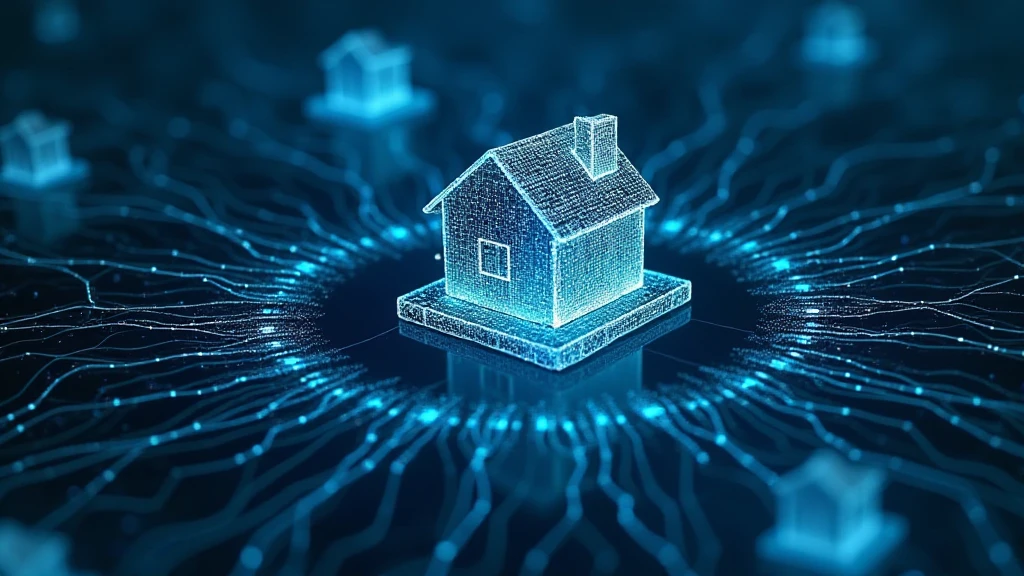Introduction
According to recent studies, the global real estate market is estimated to be worth more than $280 trillion, yet it remains plagued by inefficiencies and transparency issues. With over $4.1 billion lost in decentralized finance (DeFi) hacks in 2024 alone, security has never been more crucial. This is where blockchain technology comes in, particularly in the realm of property deeds. So, what exactly are blockchain property deeds, and how do they work? Let’s dive in.
Understanding Blockchain Property Deeds
At its core, a blockchain property deed is a digital representation of ownership for a property, recorded on a blockchain. This technology provides many advantages over traditional methods of property ownership management.
- Transparency: Everyone can access the blockchain ledger, ensuring that ownership records are open and verifiable.
- Security: Blockchain’s inherent characteristics make it resistant to tampering and fraud, significantly enhancing security.
- Efficiency: Automates processes such as title transfer and reduces the time taken for transactions.
How Blockchain Property Deeds Work
The process of creating and managing blockchain property deeds can be broken down into a few straightforward steps:

- Issuance of the Deed: A real estate transaction initiates the creation of a blockchain property deed. Once the ownership details are agreed upon, they are submitted to the blockchain.
- Verification: This involves using consensus mechanisms to confirm that the transaction is valid. Multiple nodes on the blockchain verify the information.
- Recording: Once verified, the deed is recorded on the blockchain, permanently linking the property to its owner.
- Transfer: When the property is sold, the deed can be transferred to the new owner in a seamless, automated process.
Real-World Examples of Blockchain Property Deeds
Several countries and companies are already paving the way for the adoption of blockchain-based property deeds:
- Georgia: In 2017, Georgia made headlines by being one of the first countries to record property titles on a blockchain.
- Sweden: The Swedish Land Registry has been testing the use of blockchain for land transactions, aiming to simplify the transfer process.
- Propy: This innovative real estate platform allows property purchases to be done online via blockchain, ensuring the transaction is secure and swift.
Advantages of Blockchain Property Deeds for Users
The shift toward blockchain property deeds can offer numerous benefits to the end-user:
- Enhanced Security: With blockchain technology, ownership records are immune to alteration and forgery.
- Cost-Effectiveness: Reduces the need for intermediaries, such as brokers and banks, thereby lowering transaction costs.
- Simplified Procedures: Eliminates unnecessarily complex procedures when buying or selling property.
Challenges and Considerations
While the advantages are appealing, there are several challenges surrounding the adoption of blockchain property deeds:
- Regulatory Compliance: Evolution of laws and regulations surrounding digital ownership is required to fully integrate blockchain into real estate.
- Technical Knowledge: Users must have some familiarity with blockchain technology to understand its benefits and functionalities.
- Scalability: The ability of blockchain to handle a large volume of transactions simultaneously is still a concern.
Local Implications: The Vietnam Market
In recent years, Vietnam has witnessed a surge in digital asset adoption, with the user growth rate increasing by 120% annually. This rapid growth underlines an opportunity to explore the use of blockchain for property transactions. The Vietnamese government has also shown interest in blockchain technology, laying the groundwork for future integration.
As regions like Ho Chi Minh City and Hanoi embrace technology, the implications for property deeds could radically transform the landscape of real estate transactions in Vietnam.
The Future of Blockchain Property Deeds
As blockchain technology continues to develop, the future for property deeds looks promising. Enhanced transparency, efficiency, and security could streamline real estate transactions like never before. However, stakeholders must collaborate to create an ecosystem that accommodates legal frameworks and foster a secure environment for participants.
Furthermore, while exploring opportunities for blockchain in real estate, developers must consider local contexts, as in the case of tiêu chuẩn an ninh blockchain (blockchain security standards) in Vietnam. Implementing customized solutions can lead to better acceptance and utility of the technology.
Conclusion
Blockchain property deeds represent a significant step forward in revolutionizing the way we handle real estate transactions. By leveraging the advantages of blockchain, markets can minimize fraud, enhance security, and streamline operations. With ongoing advancements, this technology could redefine ownership and transform the real estate landscape.
For those looking to engage with property transactions in the digital age, understanding blockchain property deeds is crucial. Embrace this innovation now to stay ahead in the ever-evolving real estate sector.
For more insights into the world of cryptocurrency and blockchain, visit us at officialcryptonews.
Expert Author: Dr. Minh Tran – A blockchain expert and researcher, Dr. Tran has published over 30 papers in the field of decentralized systems and is a lead auditor for several key projects in Vietnam.




